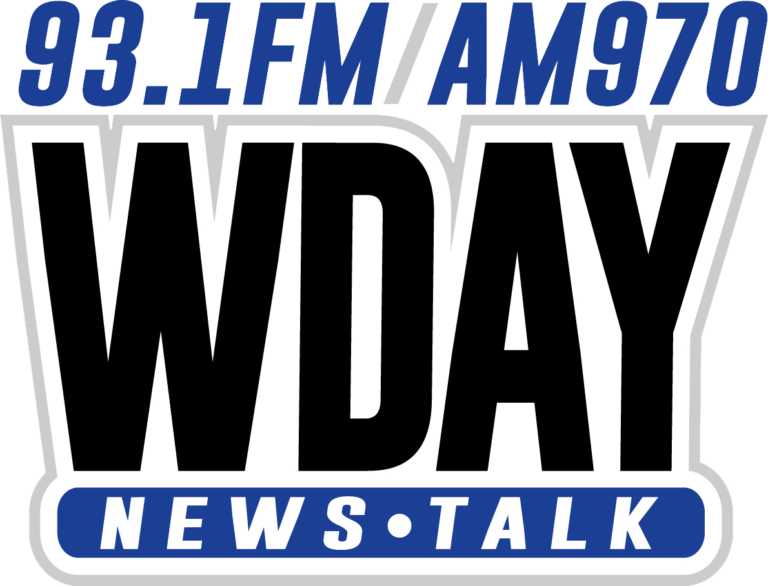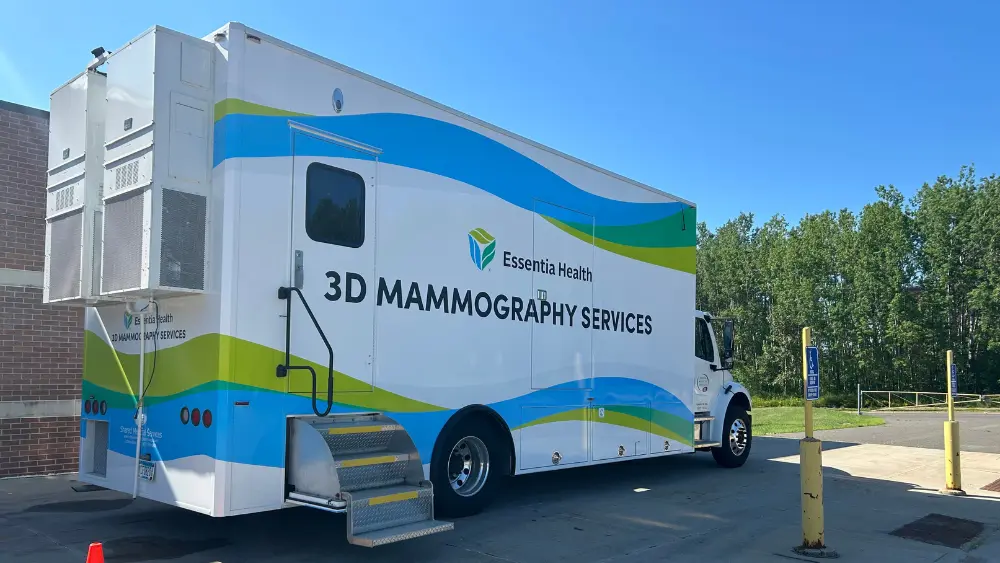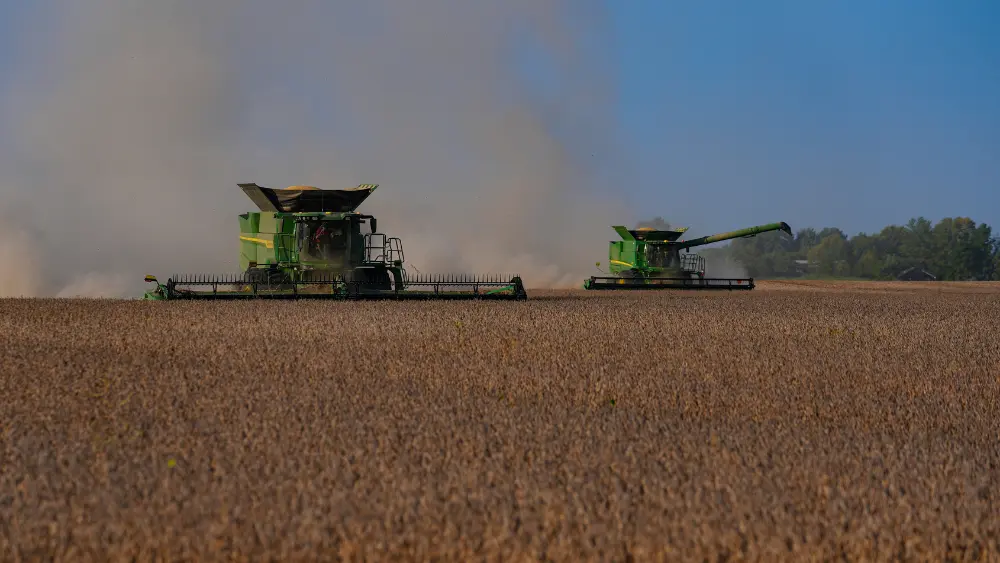By Selah Jacoway
FARGO, N.D. (Valley News Live) – October is Breast Cancer Awareness Month and, Essentia Health is expanding a new mobile mammography program, bringing early breast cancer detection services directly to nearly 20 rural communities across central North Dakota and western Wisconsin.
The initiative aims to reduce travel time and eliminate barriers for patients seeking mammograms.
Rural areas are underserved populations that face significant barriers to annual mammogram screenings, said Karissa Gladen, APRN and CNP at Essentia Health. Patients may need to drive two to three hours, arrange childcare or take time off work for appointments.
“If we can reduce any barriers like the time constraint or the traveling, that’s one of the reasons we really wanna push that mobile mammography,” Gladen said.
The mobile units provide routine 3-D mammograms in a compact but fully equipped space. Patients can enter via stairs or a lift, check in at a reception desk, and receive their screening in the dedicated mammography area. Appointments can be scheduled through their nearest Essentia clinic or via the MyChart patient portal.
October schedule
The mobile mammography units will visit communities throughout October, with some locations receiving multiple visits during the month. The schedule includes stops in Aurora, Cloquet, Walker, Hibbing, Pine River, Deer River, Mahnomen, Pelican Rapids, Sandstone, Ada, Hayward, Wisconsin, Valley City, North Dakota, International Falls, Bagley, Deerwood and Staples.
Why early detection matters
Breast cancer is the most common cancer among women in the U.S., excluding skin cancers. Early detection significantly improves outcomes. Essentia recommends women of average risk get an annual mammogram starting at age 40.
Reducing risk
While breast cancer can be genetic or environmental, maintaining a healthy weight and regular exercise are important prevention factors, Gladen said. Data shows people who work out regularly have a reduced risk of breast cancer recurrence.
Signs to watch for
Between screenings, it’s crucial to practice self-breast awareness. Patients should consult a provider if they notice any of the following changes:
- Changes in breast size or shape
- A painful or itchy nipple
- Nipple discharge without squeezing
- Swelling, redness, warmth, or darkening of the breast
- Lumps or thickening in the breast or underarm
- Changes in skin texture
- Nipple position or shape changes
- New, persistent pain in one spot
Copyright 2025 KVLY. All rights reserved.





